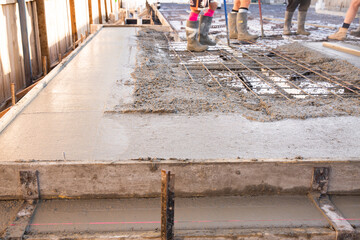Aside from making your home more attractive, updated cabinetry can add to the overall value of your property. It also ensures that your kitchen is sale ready should you choose to put your house on the market.
If you’re looking for ways to revamp your kitchen without breaking the bank, consider Cabinet Refacing Sacramento. This kitchen makeover solution is significantly cheaper and more efficient than replacing your cabinets.
It’s a Quick Fix

When it comes to refreshing your kitchen, you don’t have to rip everything out and start from scratch. Instead, consider a cabinet refacing or refinishing project to breathe new life into your home without the expense and disruption of a full kitchen remodel.
Cabinet refacing keeps your existing cabinet structure in place, which means it typically costs 30% to 50% less than replacing your entire cabinet system. It also saves on installation time, since there’s no need to relocate plumbing or reroute appliances. Aside from the savings, there are other benefits of cabinet refacing. For one, you won’t have to deal with the dust and disruption of a complete renovation. This makes refacing ideal for busy households with kids and pets.
The cabinet refacing process is also eco-friendly. Since you’re keeping your existing cabinet boxes, you’ll be reducing the amount of waste that ends up in landfills. Furthermore, you’ll be avoiding the demand for new wood, which is a more sustainable option for homeowners who prioritize green home improvement.
Moreover, refacing is an effective way to update your cabinets if they are structurally sound and you’re satisfied with the current layout of your kitchen. However, if you’re unhappy with the size of your kitchen or want to change workflows or storage features, it might be best to invest in a full kitchen remodel.
Another option for upgrading your kitchen is cabinet painting. While this is an eco-friendly option, it’s not as durable as refacing and can lead to chipping and peeling over time. However, it’s still a good choice for homeowners who prefer a classic look or are looking to make a more subtle color change.
Regardless of which route you take to revamp your kitchen, it’s important to understand what the project entails and what its limitations are. Only then can you determine if it’s the right fit for your space and budget. Visit Kitchen Tune-Up Annapolis MD to learn more about your options for a beautiful kitchen upgrade.
It’s Affordable
Cabinet refacing is an affordable option for kitchen makeovers because it allows you to achieve the look of a custom kitchen without spending the money and time on a complete renovation. The process can be completed in just a few days, which minimizes the disruption to your daily routine. It’s also a more environmentally-friendly choice than full replacement, since refacing reuses your existing cabinet boxes instead of sending them to the landfill.
Depending on the material you choose, cabinet refacing can be even more cost-effective than traditional kitchen remodeling. If you opt for refacing your cabinets with 3D laminate, which is often referred to as thermofoil, you can expect to pay roughly half the price of a complete remodel. Additionally, this type of material is available in a wide range of colors and styles to suit your unique aesthetic preferences.
While cabinet refacing is an effective option for many homeowners, it’s important to understand the limitations of this type of project before committing to it. It doesn’t allow for structural changes, so if you’re looking to reconfigure your cabinet layout or repair any underlying issues, it may be better to consider a complete renovation.
For a more manageable DIY project, painting your cabinet doors in a fresh color can give them a whole new look. Other simple upgrades that can improve both function and aesthetic include installing soft-close hinges, changing out drawer pulls, or a new backsplash. These projects don’t require a lot of specialized skills, and can be easily accomplished by any homeowner. Alternatively, you can hire a professional to perform more complex DIY projects like cabinet refacing, which requires advanced skill and training.
It’s Eco-Friendly
Cabinet refacing is a more environmentally friendly renovation option than cabinet replacement. It keeps the existing cabinet boxes intact while transforming their appearance with new doors and drawer fronts, laminate, and updated hardware. The process also minimizes kitchen waste and requires less demolition and new material production.
Refacing also offers homeowners a greater degree of customization and design flexibility than painting or staining. New cabinet doors, drawer fronts, and hardware are available in a wide array of styles and finishes, ensuring homeowners can find a customized look that complements their home’s decor. Upgrades like soft-close hinges, interior lighting, and custom storage solutions can also be incorporated into the remodel.
While refacing is a great solution for homeowners looking to refresh their kitchen, it’s not suitable for major layout changes or structural modifications. If your cabinets are sagging or damaged, you may need to consider a full cabinet replacement. However, if your cabinets are still in good condition and you simply want to change the color or style, refacing is the perfect option.
Another option for upgrading the appearance of your existing kitchen cabinets is redooring, which involves replacing the cabinet doors and hinges but leaves the cabinet box and interior structure intact. While cabinet refacing is more costly than redooring, it’s still significantly cheaper than buying and installing brand-new cabinets. Redooring can be completed in much less time as well, since the team only needs to focus on changing the cabinet doors and hinges.
Regardless of which upgrade you choose, both cabinet refacing and redooring are eco-friendly and budget-friendly options for giving your kitchen a facelift. By reducing landfill waste and the need for new materials, these green renovations are a good choice for any homeowner looking to improve their kitchen without spending a fortune.
As the name suggests, cabinet refacing involves applying a thin layer of high-quality laminate or veneer over the exterior surfaces of your existing cabinet boxes and inner frame. The old surfaces are cleaned, sanded, and prepared before being covered with a new surface. Then, new cabinet doors and drawer fronts are installed along with a fresh coat of paint or laminate. Lastly, new hinges and handles are added to complete the new look.
It’s Versatile
Cabinet refacing is a versatile solution that allows you to transform your kitchen with minimal cost, disruption and time. It offers a wide variety of customizable colors, finishes and materials that blend beautifully together to create a unique look. It is also a highly sustainable choice, reducing waste and demand for new wood by reusing existing cabinets and their framework.
Refacing can even boost your home’s resale value by increasing the overall look and feel of your kitchen. However, it’s important to keep in mind that refacing is limited in its structural changes and can’t address problems like broken or warped frames or doors. If you’re looking to make significant modifications or repairs to your kitchen, a full remodel may be a better option.
The cabinet refacing process begins by removing the existing cabinet doors, drawer fronts and hardware. Then, the old surfaces are prepped, sanded and wiped clean to prepare them for the new veneer or laminate. This layer is then adhered to the existing cabinet boxes and sides, giving them a beautiful facelift. New hardware, such as knobs and handles, is then installed to complete the look.
Today’s modern 3D laminate is a durable and high-quality material that wraps seamlessly around the edges, grooves and curves of your cabinet doors and drawer fronts for a flawless finish. This durable and water resistant surface is available in many different styles and colors, from timeless natural wood to sleek modern finishes.
When choosing a color, it’s essential to consider the rest of your kitchen and the surrounding area. You want to make sure the colors you choose will complement each other and work well with your space. If you aren’t happy with your current kitchen color, consider changing the wall paint instead of refacing your cabinets.
When it comes to cabinet refacing, the goal is to give your kitchen an updated look and add value to your home. It’s a great alternative to a full kitchen remodel and can often be done in half the time for a fraction of the price.



